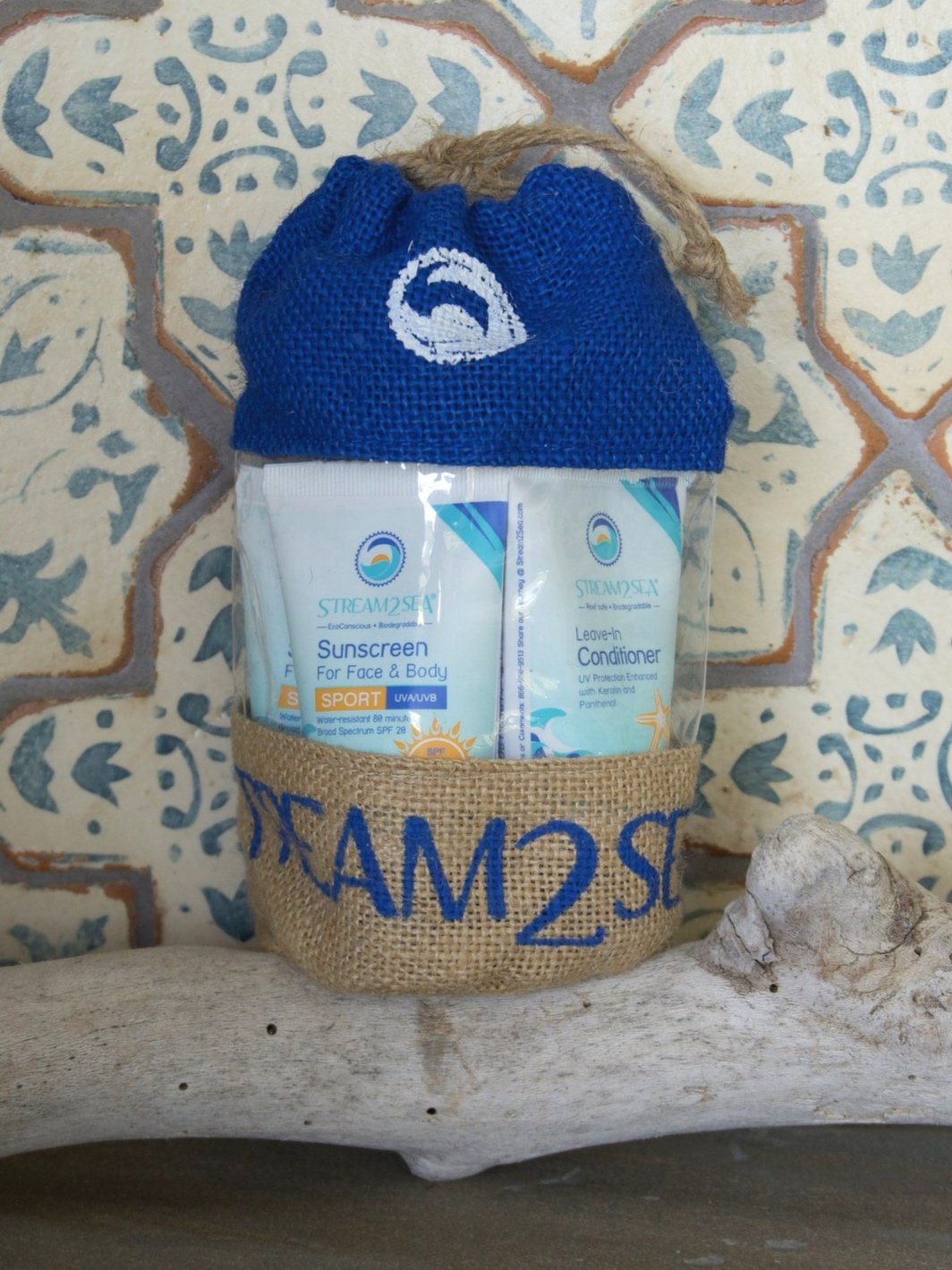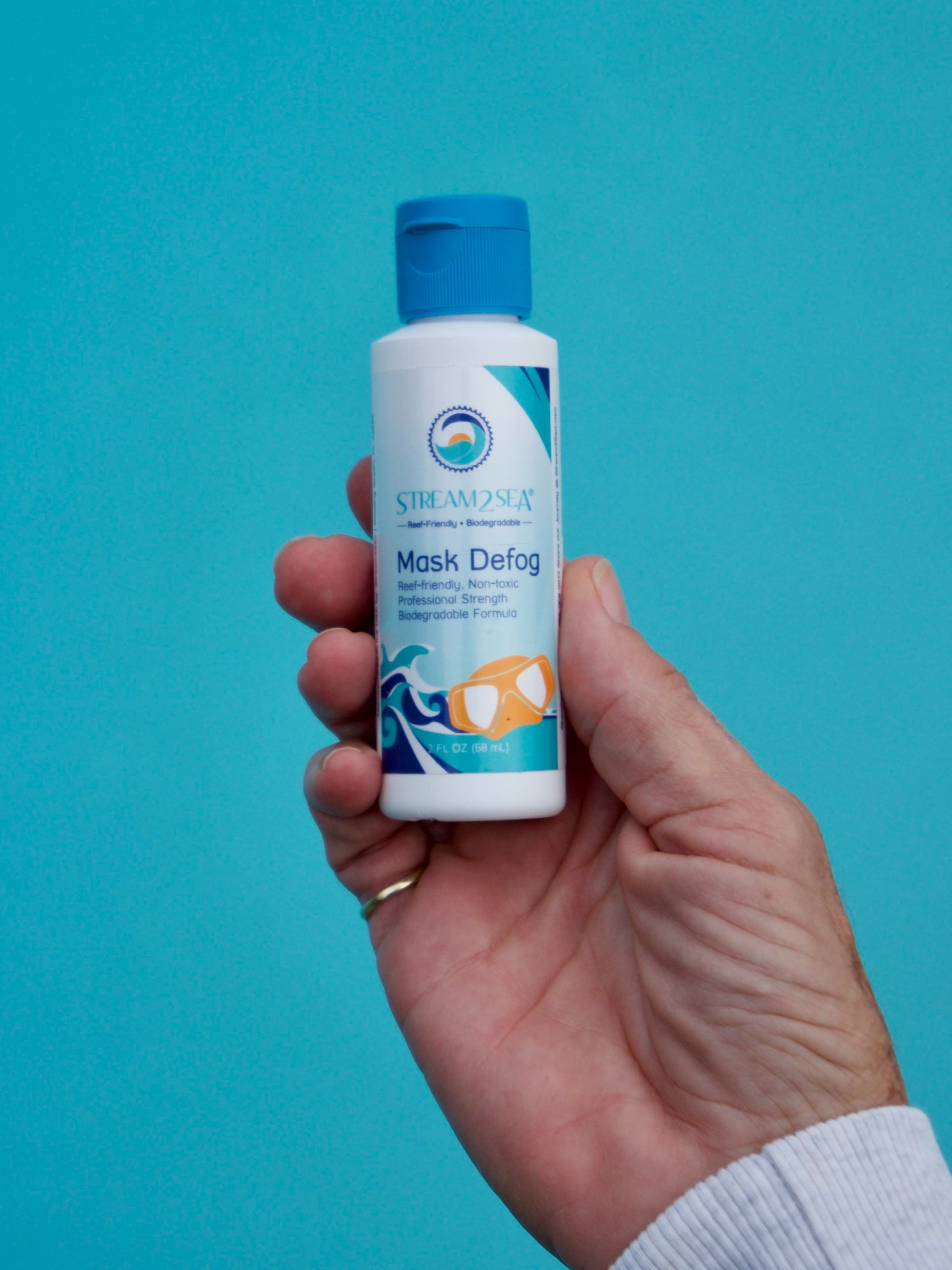Sustainable Spotlight: Stream2Sea
With International Day for Biological Diversity on the horizon, what better way to explore its significance than to step into the world of our forever Conservation Heroine, Stream2Sea’s Founder and Chief Formulator, Autumn Blum. Stream2Sea has paved the way and set the industry standard for what legitimate Reef Safe products are, all while creating educated consumers and ocean advocates along the way. They have put the ocean first at each stage, aligning with ever-evolving scientific reports to formulate products that are healthy for all inhabitants of this planet, not just humans. In fact, Stream2Sea’s products are the only in the world that are tested and proven safe for C. elegans, freshwater fish, saltwater fish and coral larvae, earning the Protect Land and Sea Certification by the Haereticus Environmental Lab. Much like vegan claims, there is little to no regulation for Reef Safe, Reef Friendly, Green or Biodegradable labeling either. Self-proclaimed “Reef Safe” brands still use oxybenzone, which kills coral larva at a concentration of 62 parts per trillion, or one drop in 6.5 Olympic swimming pools.
Currently, coral reef systems are facing insurmountable climate crises around the world: warmer ocean temperatures, overfishing and ocean acidification, to name a few. When we add more human interference, such as opting for toxic sunscreens, it pushes both corals and the ocean into a detrimental vulnerability. Coral reefs are some of the most diverse ecosystems on Earth, supporting more species per unit area than any other marine environment. Providing an unwavering and living home for such biodiversity promotes healthy trophic levels and fish stocks, pumping billions of dollars into local economies each year. As the health of reef systems degrade due to our negligence, it can no longer sustain such diverse life and thus takes the health of the ecosystem with it.
Autumn understands the full picture before tackling her forte, something most producers could learn from. She and the Stream2Sea team did not take on Reef Safe products for Green Wave clout, instead they recognized their passion for the sea and translated it into what it means to be an authentically sustainable company. With this in mind, Autumn blossomed into the oracle and biggest supporter of the Shark Free Products squalane program, becoming the first Shark Allies certified Shark Free brand! Stream2Sea’s mission safeguards coral reefs and the 25% of marine life it sustains, but they are not shy to take their purpose further to ensure sustainable sourcing for all life, drum up activists and move policy forward. With that, a look into the many corners of Autumn’s (and Stream2Sea’s) mind.
Autumn Blum: I learned to swim before I could walk and have been fascinated with sharks as long as I can remember. One of my favorite pictures was when my mom dressed me up as a shark for Halloween. Fast forward to my fortieth birthday, and my bucket list trip was to the Galapagos to see the schooling hammerheads and whale sharks.
I’ve been lucky enough to turn my passion into my profession. I started Stream2Sea after a very sharky trip to Palau where we watched shampoos and sunscreens wash off a liveaboard floating over a pristine reef. As a cosmetic chemist, I knew they contained chemicals that were toxic to many kinds of sea life – and I knew we needed to do better.
Most consumers today have heard of ‘reef safe’ sunscreens, but many feel they only need to use these safer products when they are on coral reefs. But there’s no doubt that toxic, hormone-disrupting chemicals released in aquatic ecosystems bioaccumulate and end up impacting apex predators like sharks, as well as dolphins and turtles. (That works on a geographic basis too – toxic petrochemicals in sunscreens worn into a Chicago swimming pool flow down the Mississippi River, through the Gulf of Mexico and then into the Gulfstream where they impact the vulnerable coral reefs off the coast of Florida.) There’s also increasing evidence that these harmful ingredients are harming our freshwater resources as well.
Developing formulas that are safe for people and for our waters is easier said than done though. My first formulations – which would have passed any clean beauty assessment for human safety -- killed an entire tank of zebrafish. I cried, but it only made me more committed to making sure that everything we make is truly safe in all aquatic ecosystems.
When I started Stream2Sea in 2015, we literally had to invent some of the testing protocols because it had never been done. And I quickly learned that just because something is safe for us does not mean it will be safe for our blue planet. Even seven years later, we still have the only sunscreens on the planet that have been tested and proven safe for fish and coral larvae, and have the Protect Land + Sea certification from the Haereticus Environmental Laboratory.
But protecting our aquatic environment sometimes goes beyond the basics of cosmetic chemistry. We’re the first company to earn Shark Allies’ Shark-Free certification showing that our squalene comes from sustainable sources like olives, not the three million sharks that are killed every year for the compound found in their livers. We also refuse to use FedEx shipping, which is the least expensive option for most of our packages, because they facilitate the shark fin trade that kills up to 100 million sharks every year, driving some species to near extinction.
I am a firm believer that small steps add up to big change. If we can do better, we should. I don’t believe that sunscreen or plastic straws are the primary causes of our ocean’s decline, but I know they impact our waters. So I will do the best I can to make products safe for us and our blue planet, and will choose to support companies that protect what I love. We have grown quickly because of passionate supporters who help educate others to make better choices – and I am grateful!
Steps you can take today to support our blue planet and safeguard biodiversity:
Take the time to learn about the effects sunscreen has on our coral reefs and aquatic ecosystems, here is a great place to start. To the right of the page, you will find a printable to-go guide of ingredients to avoid, which leads us to #2:
Make informed decisions when it comes to what kind of sunscreen you buy. NOAA’s guidance on what is Reef Safe: no oxybenzone, avobenzone, octinoxate or clear/nano zinc oxide.
Does your state have a ban in place to support? Keep up with current sunscreen ban proposals in Florida, and brush up on successful bans around the world here.
Educate your friends about the issue. No one wants to hurt a coral reef or kill a fish, but some personal care ingredients do just that. Shop and follow @stream2sea on all channels, for awesome campaign partnerships and environmental action alerts.







